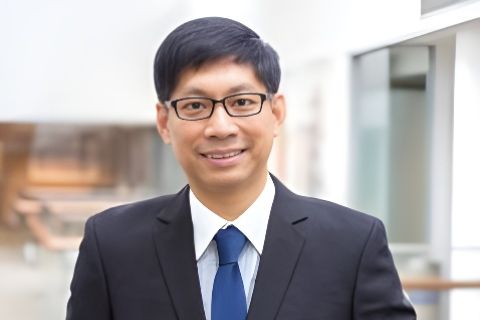By Alvin Lee
SMU Office of Research Governance & Administration – At the Singapore Rising Scholars Conference that was held in May this year, SMU Provost Professor Alan Chan reiterated the central role interdisciplinarity plays in the university’s research agenda: “Interdisciplinarity works best when like-minded individuals come together with similar concerns addressing large, complex issues.”
Securing competitive grants enables the forming of a strong interdisciplinary team to address those issues, Professor Chan explained to the Office of Research Governance & Administration (ORGA), adding that it helps build a stronger PhD community.
Where grants can be viewed as ‘input’, the Provost emphasised it must lead to meaningful ‘output’, and more importantly, impactful outcomes.
“Even though output is often understood in terms of academic publications, I think we should widen our understanding of ‘output’,” says Professor Chan. “It could generate economic impact, for example, creating jobs and spurring economic growth or raising productivity. That is also good output, yielding the outcomes and impact we want to see.”
He adds: “The important point is that the impact is part of the original design; it is not something that we add to the project afterwards. It is very encouraging to see colleagues addressing research questions or real-life problems with the aim of creating meaningful change that would benefit society. At the Singapore Rising Scholars Conference, which is an excellent event, I was of course particularly concerned to encourage the young talents present to see how their research could make an impactful difference.”
Raising rankings and communicating impact
Professor Chan singled out strategic partnerships and collaborations such as the Global Alliance on Urban Sustainable Societies, which the SMU Urban Institute launched in July during World Cities Summit Mayors Forum 2025, as an example of SMU creating research impact and elevating its research standing.
Citing the four other founding members of the Alliance – Boston University, University of Melbourne, University of Toronto, and The London School of Economics and Political Science (LSE) – as examples of such strategic partnerships to address complex issues such as urban sustainability, Professor Chan said they also “benefit our research agenda, creating even larger impact… to address global issues.”
But how important are university rankings? Do they affect SMU’s research policies?
“It cannot be denied that rankings are important,” the Provost acknowledges. “Students use them in planning their future; parents also look at them in trying to provide the best options for their children; universities also look at them when they want to establish partnerships with other institutions; employers also look at these rankings.
“Having said that, universities do not chase after rankings for its own sake. Rankings are the consequence of what we do. What we do here in education and research is to create meaningful impact in the lives of individuals, of students, and extending the frontiers of knowledge and disseminating knowledge for the benefit of the larger whole. If we do these things right, recognition will follow and that will translate into higher rankings.”
Professor Chan also highlighted that while doing world-class research is fundamental, it is also important to consider bringing our findings to a wider audience beyond academia, in a language a non-specialist audience could understand. “We have to be more intentional, more explicit in disseminating our research findings not only to the global academic community but also to industry, government and the community that will benefit from our research,” notes Professor Chan. “The Office of Research Governance & Administration and the newly established Office of Impact will help our colleagues to raise the visibility of the impact of their research.”
A successful Provost
As Professor Chan gets into his stride as Provost of SMU, the focus is firmly on equipping students with the resilience and skillsets for future success. That will extend to adult learning and lifelong learning, the professional and continuing education space, as well as expanding the university’s postgraduate programs.
However, Professor Chan is also keen to strengthen the recruitment and development of faculty to realise the university’s aims and ambitions. “We should be thinking about bringing in the best and bringing out the best in our people,” he said.
“At SMU, we focus on Digital Transformation, Sustainable Living, as well as Growth in Asia, all of which are very important. A sharper focus may further propel the university forward. Research on longevity economies and societies, urban sustainability, as well as future resilient workforces for example, are all critical to Singapore's continued success and regional and global development. As SMU seeks to distinguish itself and drive research with purpose and responsibility, strategic faculty recruitment will play an increasingly important role,” Professor Chan said.
“SMU has done exceedingly well over the past 25 years. Now, I believe we are ready to make an even stronger impact on higher education in Singapore and beyond, not to emulate other universities but to chart our own distinctive path forward!”
Back to Research@SMU August 2025 Issue
See More News
Want to see more of SMU Research?
Sign up for Research@SMU e-newslettter to know more about our research and research-related events!
If you would like to remove yourself from all our mailing list, please visit https://eservices.smu.edu.sg/internet/DNC/Default.aspx

